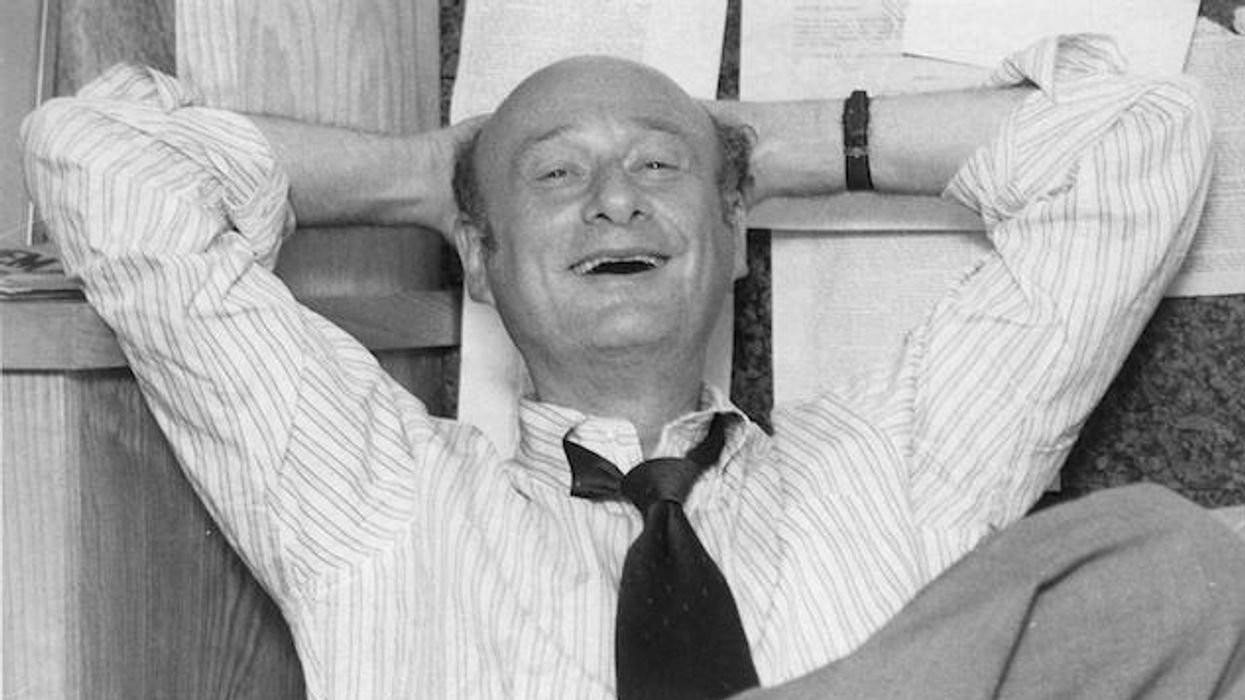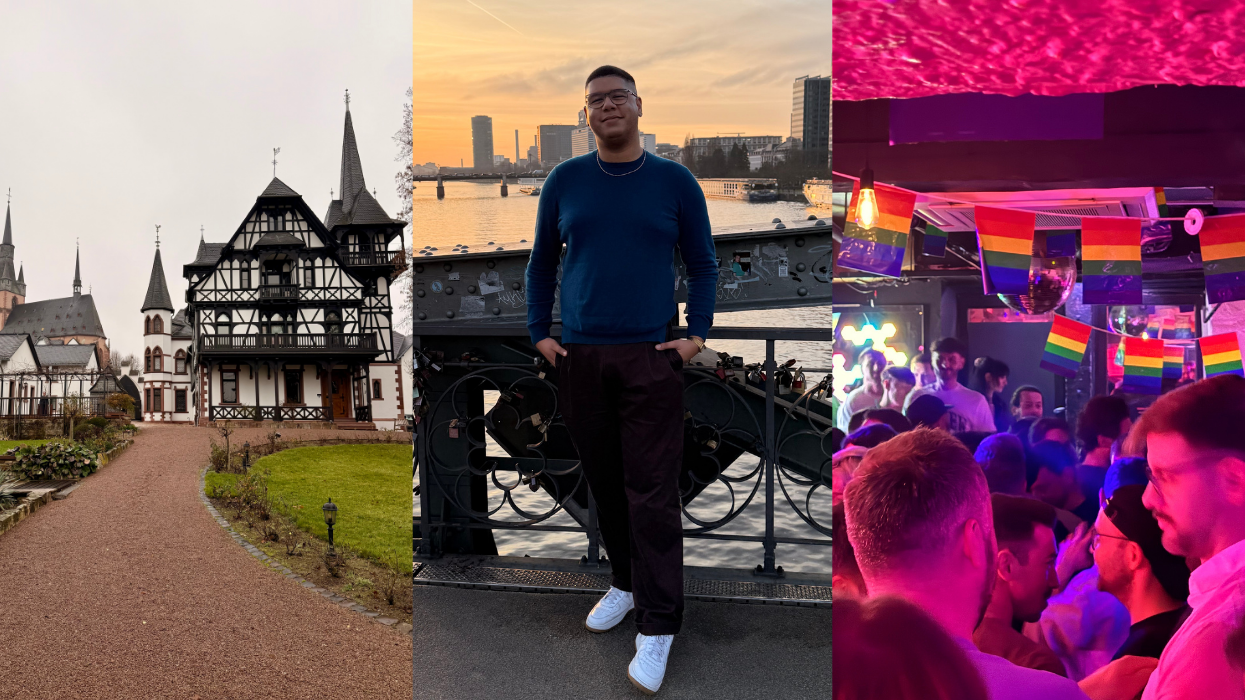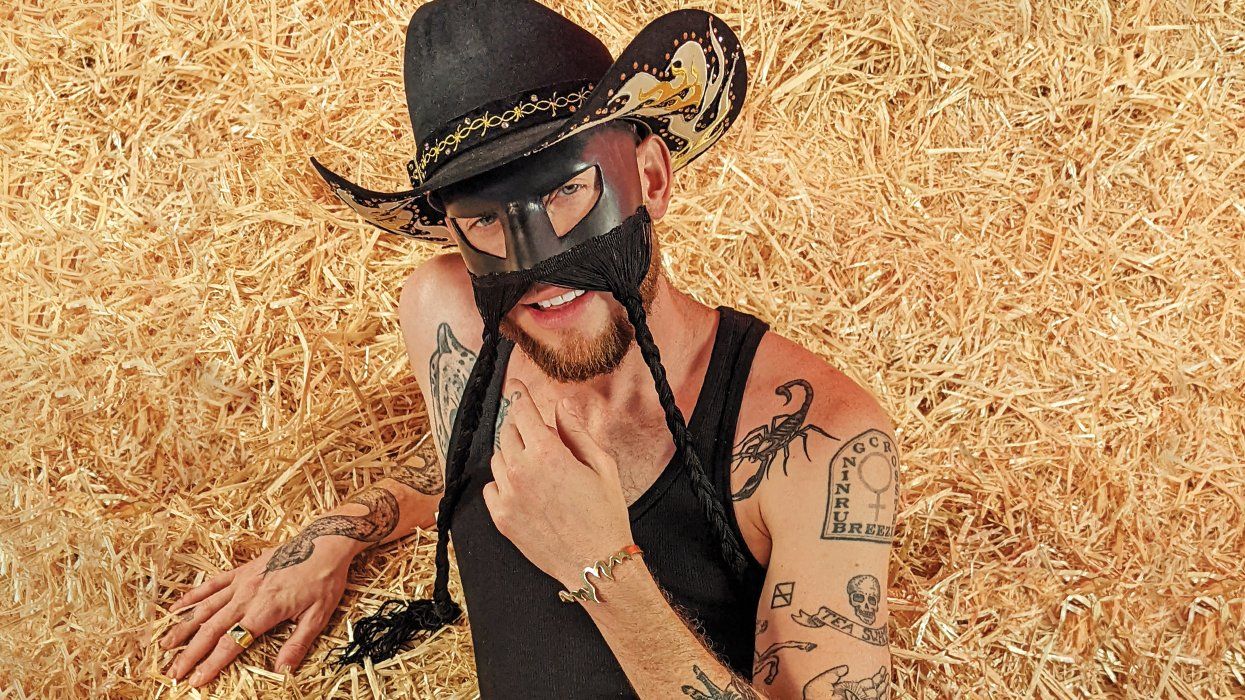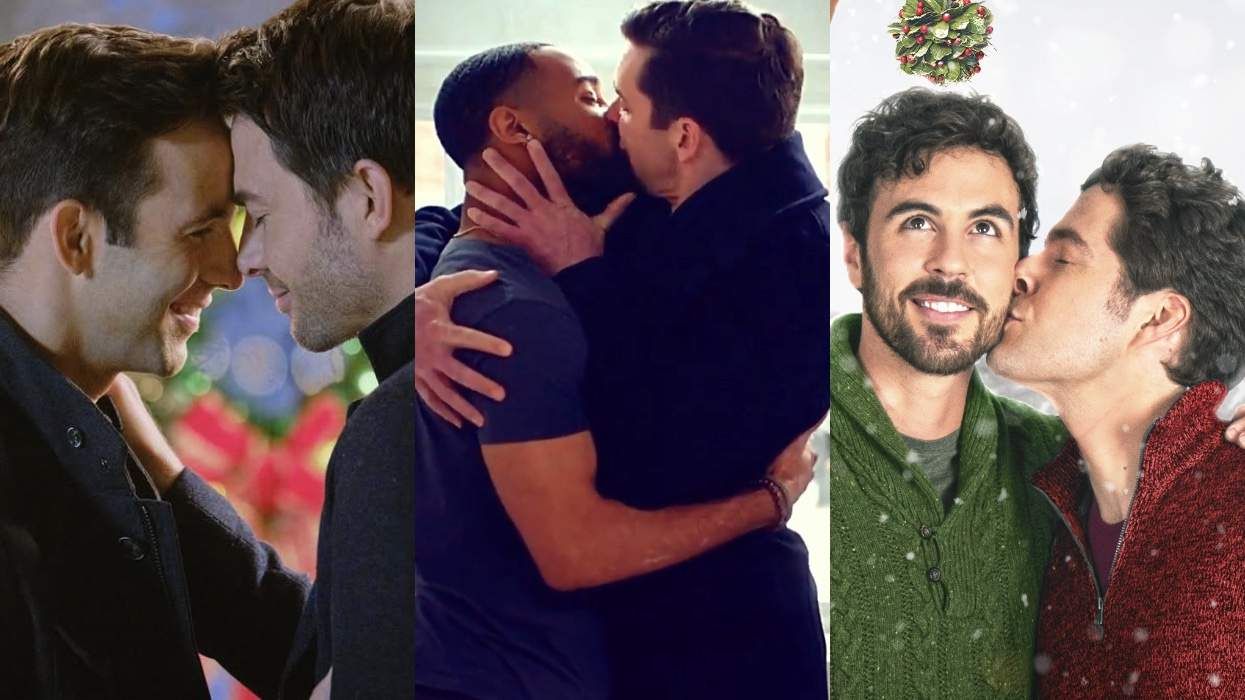Ed Koch as seen in 'Koch,' a film by Neil Barsky. A Zeitgeist Films release.
Former New York City mayor Ed Koch died of congestive heart failure this morning, February 1, according to his spokesman George Arzt. Koch's 12-year mayoralty spanned from 1978-1989, which meant he was the leader of the city during the beginnings of the AIDS crisis.
As the NYTimes writes in its obituary:
"Mr. Koch was New York's most colorful mayor since Fiorello H. La Guardia. Tall, squinty-eyed, baldish, with a nimbus of gray and a U-shape smile more satanic than cherubic, Mr. Koch told a story like a raconteur in a deli, kvetching and ah-hahing with the timing of a Catskill comic. He loved to clown for photographers on the streets of New York, on a camel in Egypt or on a mechanized sweeper in China.
His image on television, his high-pitched voice on the radio, his round shoulders and gangly arms and baggy pants, and especially his streetwise gusts of candor -- saying what people said over the dinner table in Queens, the Bronx and Brooklyn -- gave New Yorkers the illusion that he was a rumpled, familiar acquaintance. But for all his self-promoting stream of consciousness, Mr. Koch was an intensely private man who revealed little about himself and had no patience for introspection."
A bachelor until the end, Koch always deflected questions about his sexuality. As he wrote in Citizen Koch, his 1992 autobiography: "Whether I am straight or gay or bisexual is nobody's business but mine."
Koch wrote a column for me, from 2006-2007, while I was an editor at New York Press that ranged over topics such as his respect for George W. Bush as a "hero" to the loss of Brooke Astor. It was something he agreed to do (for free) although he had been named the 18th Most Loathsome New Yorker in the same publication just a few months prior. As the editors wrote of Koch at the time: "Koch's rep as Mr. New York has managed to survive and even thrive in the 17 years since the publication of Wayne Barrett and Jack Newfield's devastating City for Sale: Ed Koch and the Betrayal of New York. It's as if the names Meade Esposito, Stanley Friedman, and Donald Manes have been scrubbed from history, allowing Koch to pose against an airbrushed legacy and somehow remain an active player even as he publicly descends into the middle stages of senility."
I was surprised when he wrote a column about his support for gay rights in July 2007, especially his closing lines: "The progress we have witnessed and expect to witness on gay rights confirms the continuing validity of Victor Hugo's observation in 1852, 'An invasion of armies can be resisted, but not an idea whose time has come.' "
I had lunch with him later that month at the Four Seasons (his insistence) and when our conversation drifted in the direction of his sexuality, he gave me a similar rebuff, essentially quoting himself back to me, and saying he didn't want to dignify that sort of question with a response because it would mean that other politicians would have to submit to the same question. That didn't mean he wasn't a flirt throughout.
In a 2009 story in the Times, Koch told Sam Roberts: "I do not want to add to the acceptability of asking every candidate, 'Are you straight or gay or lesbian?' and make it a legitimate question, so I don't submit to that question. I don't care if people think I'm gay because I don't answer it. I'm flattered that at 84 people are interested in my sex life -- and, it's quite limited."
The documentary, Koch, opens in theaters in New York City today. As Yehudit Mam wrote in our review of Neil Barsky's film, Koch was "a brilliant, larger than life, complicated gay man...[and] like all world-class narcissists, Koch's hubris seems to be his lack of empathy (not as bad as Rudolph Giuliani's, but close), be it with the black community on the closing of a hospital in Harlem, or his unsympathetic response to the murder of a black man at the hands of white youths in Brooklyn; or his lack of compassion, whether real or perceived, at the time of the AIDS crisis in the '80s."
The Roberts story in the Times also pointed out that he had already installed his tombstone and planned his funeral. The funeral service will be at Temple Emanu-El in Manhattan, and he will be buried in the nondenominational Trinity Church Cemetery in Washington Heights under a tombstone that quotes the last words of Daniel Pearl, the Wall Street Journal reporter beheaded in 2002 by Islamic terrorists--"My father is Jewish, my mother is Jewish, I am Jewish"--and includes the most familiar Jewish prayer, in English and Hebrew: "Hear, O Israel, the Lord our God, the Lord is One." The epitaph, which the former mayor wrote after a stroke, reads:
"He was fiercely proud of his Jewish faith. He fiercely defended the City of New York, and he fiercely loved its people. Above all, he loved his country, the United States of America, in whose armed forces he served in World War II."
Watch the "Last Word" clip from the New York Times below:






























